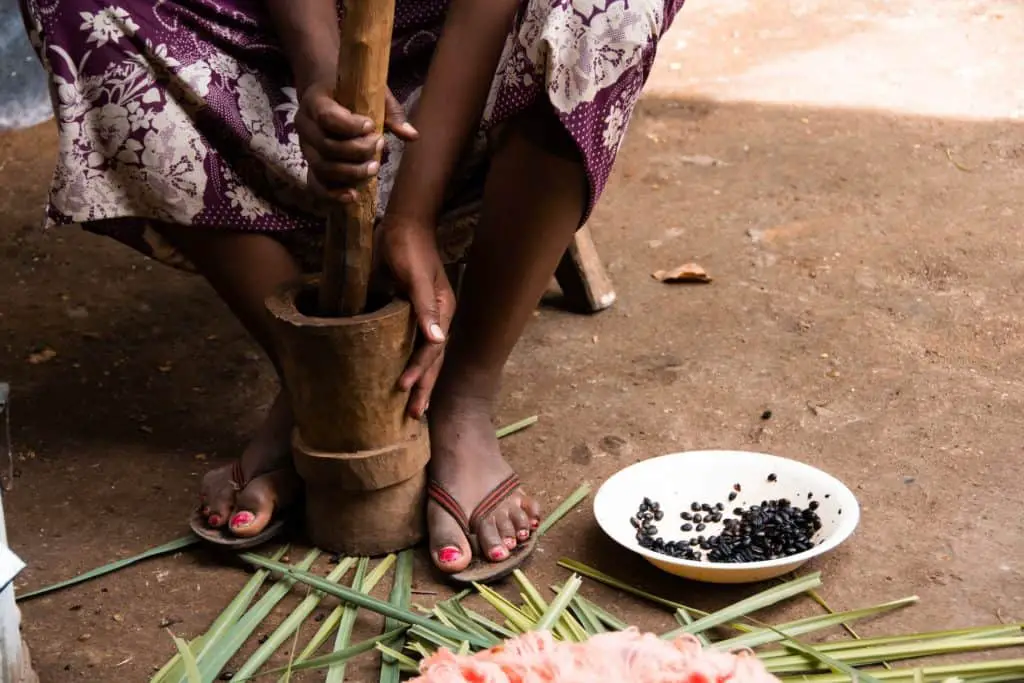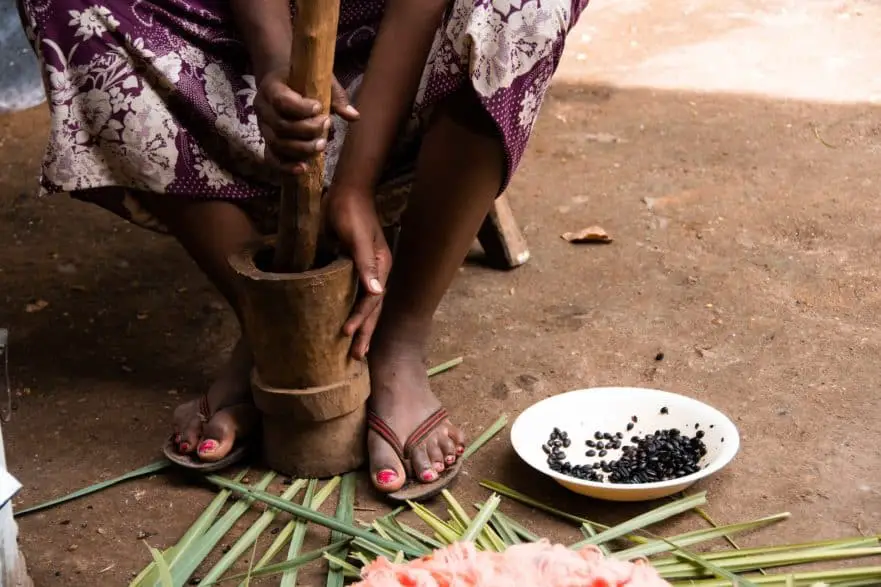
In Ethiopia, coffee is more than a beverage—it’s a cultural cornerstone that binds people together. As the birthplace of coffee, Ethiopia has woven the drink into its social fabric through the elaborate coffee ceremony, known as jebena buna in Amharic.
This daily ritual, often lasting one to two hours, transforms raw coffee beans into a shared experience of hospitality and connection. Performed in homes, at celebrations, and even in modern cafes, the ceremony reflects Ethiopia’s deep respect for community and tradition.
Here’s a closer look at this cherished practice, including a step-by-step guide to its process, its significance, and a chart illustrating the coffee’s changing strength across its three rounds.
The Roots of Ethiopian Coffee Culture
Ethiopia’s connection to coffee dates back centuries, tied to the legend of Kaldi, a goatherd who noticed his goats became lively after eating red coffee cherries. This story marks Ethiopia as the origin of Arabica coffee, now grown worldwide. Coffee is Ethiopia’s top agricultural export, supporting millions of farmers and accounting for about 17% of the global coffee market.
Beyond economics, coffee holds a symbolic place in daily life, with the proverb “buna dabo naw” (“coffee is our bread”) capturing its importance. The jebena buna ceremony, performed up to three times a day, fosters bonds among families, friends, and strangers.
How the Ceremony Is Performed: A Step-by-Step Guide
The jebena buna is a meticulous process that combines ritual, skill, and community. Here’s how it unfolds, typically led by the youngest woman in the household:
- Prepare the Space: The hostess spreads fresh grasses or flowers on the floor, symbolizing nature and welcome. She sets up a tray with small ceramic cups called cini and burns incense to create a fragrant, calming atmosphere, believed to ward off negative spirits.
- Heat the Water: She fills a jebena—a black clay pot with a round bottom and narrow neck—with water and places it over hot coals to boil, setting the stage for brewing.
- Roast the Beans: The hostess takes raw, green coffee beans and roasts them in a flat pan over an open flame. She stirs and shakes the pan to remove husks, continuing until the beans pop and crackle, reaching a medium-brown or dark, oily finish. She shares the aroma with guests, letting them inhale the rich scent.
- Grind the Beans: The roasted beans are cooled and ground into a coarse powder using a mukecha (wooden bowl) and zenezena (metal pestle), similar to a mortar and pestle. This step is deliberate, adding to the ceremony’s rhythm.
- Brew the Coffee: The ground coffee is added to the boiling water in the jebena and steeped for a few minutes. In regions like Kaffa or Sidamo, spices like cardamom or butter may be included for added flavor.
- Serve the Coffee: The hostess pours the coffee from about a foot above the cini cups, creating a smooth, unbroken stream to filter out grounds. The coffee is served in three rounds—abol (strong), tona (milder), and baraka (weakest)—each with a unique purpose: pleasure, contemplation, and blessing. Guests add sugar, honey, or sometimes salt, depending on regional traditions.
- Share Snacks and Conversation: Popcorn, kolo (roasted grains), injera, or bread accompany the coffee, encouraging guests to linger, talk, and connect.
This process, repeated up to three times daily, turns coffee into a communal ritual that strengthens relationships.
The Three Rounds of Coffee
The ceremony’s three rounds of coffee—abol, tona, and baraka—each have distinct strengths, as shown in the chart below. The first round, abol, is the strongest, delivering a bold flavor. Tona, the second, is milder, encouraging reflection. Baraka, the weakest, is seen as a blessing for those who drink it. The HTML-based bar chart illustrates this progression, with relative strength percentages for each round.
A Social and Spiritual Ritual
The jebena buna is more than a coffee-making process; it’s a platform for community. Neighbors gather to share stories, discuss issues, or resolve conflicts, with elders passing down wisdom to younger generations. The ceremony is a daily ritual in many households, performed morning, afternoon, and evening, and it’s a staple at weddings, funerals, and religious events. Offering coffee to guests is a sign of respect, and in rural areas, families take turns hosting, strengthening community ties.
Modern Adaptations and Global Reach
While the ceremony remains a hallmark of Ethiopian life, it’s adapting to modern contexts. In urban areas like Addis Ababa, cafes like Tomoca serve coffee in a faster, espresso-bar style for busy professionals. Yet traditional ceremonies persist, even in cities, and are showcased at restaurants and cultural events worldwide, from San Diego to London. Ethiopian immigrants like Yared Markos in London or Meeraf Mamo in Seattle host ceremonies to share their heritage, often adding live music or educational talks to engage global audiences.
Challenges and Preservation
Recent challenges, including the Tigray civil war (2020–2022) and tensions with Eritrea, have disrupted rural communities where coffee farming and ceremonies thrive. Climate change also threatens coffee production, with rising temperatures affecting yields. Despite these hurdles, the ceremony endures as a symbol of resilience. Cultural festivals and specialty coffee movements, highlighting beans like Yirgacheffe and Sidamo, help preserve Ethiopia’s coffee heritage.
Why It Matters
The Ethiopian coffee ceremony is a celebration of connection, rooted in the country that gave coffee to the world. Its careful steps create a shared experience that transcends the drink itself. Whether in a rural village or a bustling city, the jebena buna invites people to slow down, talk, and build relationships.
For Ethiopians, it’s a daily reminder of their heritage; for visitors, it’s a chance to connect with a culture that values community above all. Next time you drink a cup of Ethiopian coffee, think of the jebena buna and the bonds it fosters—one cup at a time.

